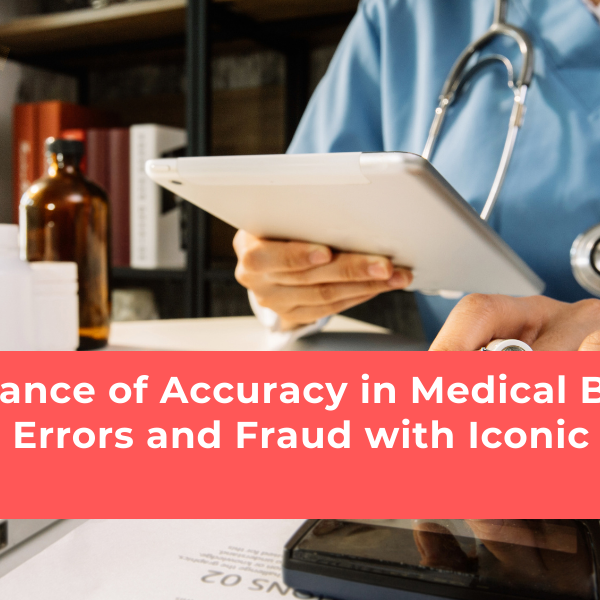What is Denial management?
Healthcare billing requires effective denial management, and in order to stay competitive, providers must constantly adjust to market developments. It’s crucial to stay up to date on trends and forecasts for denial management as the healthcare market changes. We’ll examine new developments in denial management in this post and offer industry forecasts.
Utilising technology to streamline procedures and increase efficiency is a prominent trend in denial management. In order to spot patterns and foresee denials, this entails applying artificial intelligence and machine learning algorithms. By utilising data and automation, suppliers can improve the effectiveness of their revenue cycle and cut down on the time and resources required for manual denial management.
Focusing on patient participation and education is another trend. Providers can lessen misunderstandings and uncertainty that may result in claims being denied by giving consumers clear and honest information about their medical bills and the billing process. Along with leveraging patient portals and mobile apps to speed up communication and payment, this also entails giving patients comprehensive benefit explanations.
Predictions for the Future of denial management
Predictive analytics, artificial intelligence, and blockchain technology are all likely to be used more in denial management in the future. By automating procedures and enhancing claim accuracy, these technologies can assist providers in finding patterns and trends in denials. Alternative payment methods and value-based care, which can lower denials and enhance patient outcomes, may also become more prevalent.
Market Insights
From 2022 to 2027, the U.S. healthcare denial management market is projected to rise at a CAGR of approximately 8.8%, surpassing USD 5.9 billion by that year. The market for healthcare denial management in the United States is expanding as a result of factors like the rising number of medical claim denials and the complicated payer reimbursement processes. Denial of a claim refers to an insurance company’s unwillingness to comply with a provider’s or individual’s request to pay for healthcare services obtained from a healthcare professional. Denial management entails systematically examining each denial, conducting root cause analyses of denied claims, examining denial trends to identify a pattern by one or more insurance carriers, and re-engineering or redesigning the procedure to reduce the likelihood of claim denials in the future.
AI and automation programmes can lower claim denials and boost return on investment. The expansion of the U.S. healthcare denial management market can be significantly aided by AI, which can greatly minimise basic errors, increase staff productivity while processing claims, and offer insightful rejection management information that will assist hospitals manage their cash flow and reduce revenue loss.
Hospital claim denial rates increased over the previous few years, but they recently reached a record high due to the COVID-19 public health emergency. Medical claim rejections have increased 11% in the US during this time, with the Pacific Coast and the Northeast experiencing the highest denial rates of 13.1% and 12.9%, respectively. The Coronavirus Aid, Relief, and Economic Security (CARES) Act was created in the US in order to offer the medical resources required to combat COVID-19. Provisions in the CARES Act related to medical billing caused a rise in claim rejections. The country’s demand for healthcare claims management will increase as a result.
The following elements are probably going to help the U.S. healthcare denial management market expand:
- Transition to Value-based Reimbursement
- Healthcare Claims and Medical Billing Errors
- Standardisation is necessary, as are trained professionals.
Key Highlights:
- By improving the management of claim denials, automation and AI-based denial management are key market trends.
- The adoption of denial management software is being influenced by the growing requirement to manage and minimise claim denials and lessen the revenue impact on healthcare systems caused by the loss of denials.
- Healthcare organisations are moving towards automated denial management systems as a result of the market’s transition towards value-based solutions.
- The healthcare denial management market in the US is being more widely used as providers try to improve claim denial management with various tactics in an effort to maximise reimbursement and recover lost healthcare income.
- Hospitals are seeing an increase in payer claim denials, with an average rate up 23% from 2016 to 2020. The demand for revenue cycle management and denial management programmes in the healthcare industry is being driven by this cause.
U.S. HEALTHCARE DENIAL MANAGEMENT MARKET SEGMENTATION
- By type, Integrated had the lion’s share. This can be ascribed to the several advantages of EHR integrated with denial management. This involves facilitating easy access to health information, boosting data privacy and security, improving diagnostics and treatment, and lowering costs.
- Cloud-based options allow insurers the adaptability to manage hefty workloads and provide customer support to policyholders. A technique to distribute the system and data across several places is made possible by the growing acceptance of the cloud-based model across numerous geographies. Additionally, cloud-based solutions reduce the chance of data loss or inaccessibility as a result of an emergency. The development of cloud-based solutions in denials management programmes will be fueled by all of these considerations.
- Healthcare institutions are attentively examining their internal procedures and technological advancements in an effort to provide improved patient care. Healthcare providers need flexible, cost-effective, and customer-focused denials management solutions. The availability of all patient information made using denials easier with the incorporation of electronic health records. The adoption of healthcare denial management solutions by healthcare providers is growing as a result of all these causes.
VENDOR LANDSCAPE
- The UnitedHealth Group, McKesson Corporation, Change Healthcare, eClinicalWorks, Experian, Allscripts Healthcare Solutions, and other major companies are the market leaders in the United States for healthcare denial management.
- There has been an increase in huge firms acquiring numerous third-party vendors. For instance, Longshore Capital Partners and Revco Solutions recently purchased ARMC, a denial management specialist, in order to broaden the company’s global reach and provide additional services to its clients.
- MRO, a top clinical data workflow platform, acquired Cobius Healthcare Solutions, a top provider of reimbursement and compliance risk management tools, to expand its software and workflow solutions for audit and denial management.
- Change Healthcare has introduced a new AI-powered solution to assist clinicians in anticipatorily identifying potentially problematic claims and resolving problems that might result in denials.





